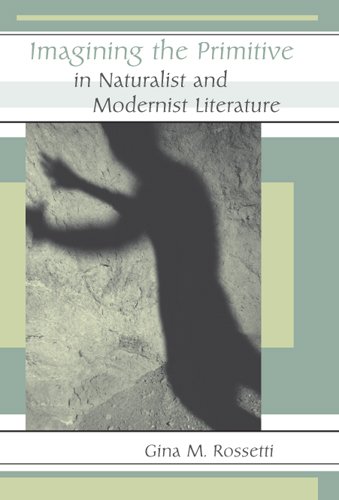(Ebook) Imagining the Primitive in Naturalist And Modernist Literature by Gina M. Rossetti ISBN 9780826216250, 9780826265036, 0826216250, 0826265030
From Herman Melville’s Queequeg to Ken Kesey’s Chief Bromden, primitive characters have played key roles in literature and have generally emerged as enduring and sympathetic figures. In this book, Gina M. Rossetti focuses on works by Jack London, Frank Norris, Eugene O’Neill, Theodore Dreiser, Willa Cather, Ernest Hemingway, Gertrude Stein, and Nella Larsen, arguing that primitive literary characters reveal complex and culturally based assumptions. In the period of 1895 to 1929, Rossetti asserts, the primitive serves as a literary figure whose presence might link naturalism and modernism. Defining the primitive as “the dominant culture’s projection of its internal fear, anxieties, and attractions,” Rossetti explores how the working class and racial and ethnic minorities came to occupy the position of “primitives” and the degree to which more privileged individuals imagined themselves through the lens of this sometimes denigrated and sometimes romanticized Other. For the selected naturalist authors, the primitive is rendered in a Darwinian context, representing a figure whose presence will jeopardize American cultural identity by being evolutionarily inferior. In modernist literature of the twentieth century, however, the primitive separates from Darwinism and becomes aestheticized. In much of the literature from this period, the primitive functions as a naive posture for the artist to assume in order to escape the complications of modern life. The late nineteenth and early twentieth centuries were a time of growing concern for the “vanishing Anglo Saxon,” and the primitive figure is often linked with theories of race. In this context, the racial primitive reflects the culture’s need for, and perpetuation of, a racial Other who gives body and shape to American identity. The final evocation of the primitive combines both the naturalists’ preoccupation with race-based notions of personhood and the modernists’ desire for a romantic escape. Whether the primitive is invoked positively or negatively, Rossetti argues, it delineates the limits of American identity and, in the time period covered, often induces a double-edged response. The primitive’s marginality suggests the degree to which authors, privileged and otherwise, rely on its embedded presence in our national literature. Rossetti ultimately demonstrates that the primitive is not static but rather inconsistent and transformational, the source from which many naturalist and modernist texts project their concerns, fears, and contradictions.
*Free conversion of into popular formats such as PDF, DOCX, DOC, AZW, EPUB, and MOBI after payment.


